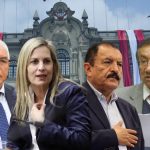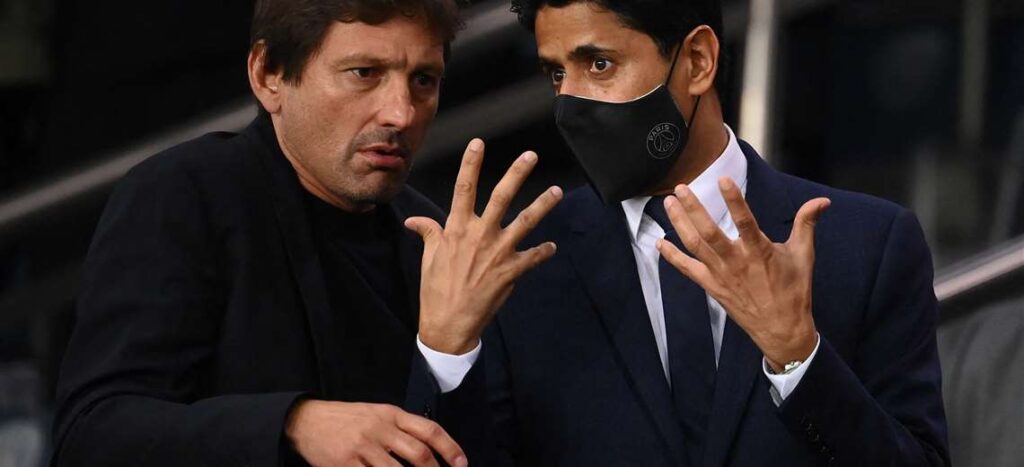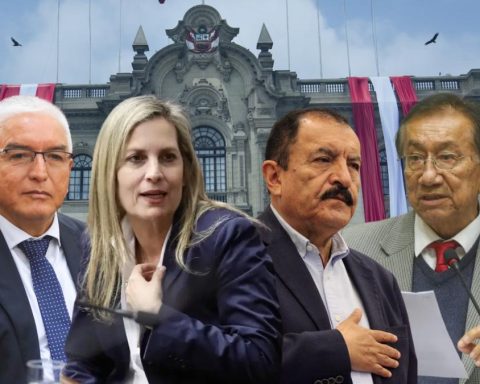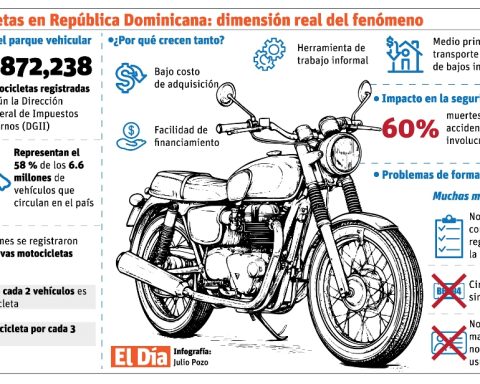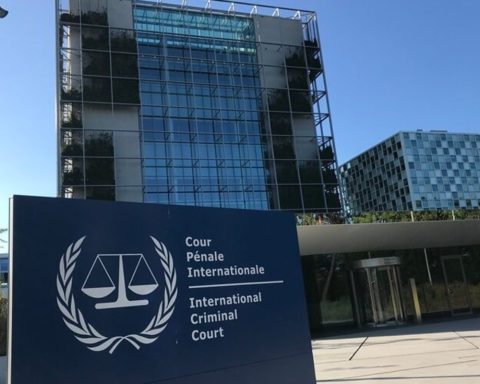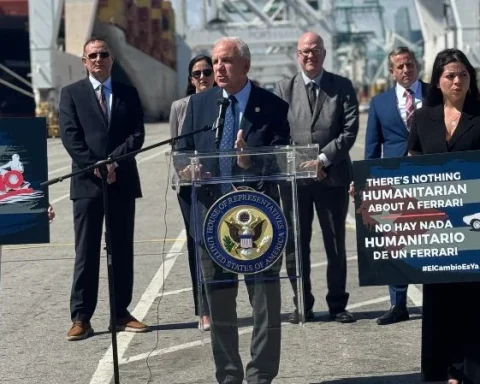“Wado” De Pedro and Larreta participated in a court hearing for funds allocated to the City
WATCH VIDEO
The Supreme Court of Justice set this Thursday a within 30 days so that the National Government and the administration of the City of Buenos Aires reach an agreement on the dispute over the funds transferred for the maintenance of the police during the administration of Mauricio Macri.
The highest court set a new hearing after the parties, represented by the Minister of the Interior, Edward of Peterand the head of the Buenos Aires Government, Horacio Rodriguez Larretaheld a meeting called to bring positions closer together and reach an agreement.
In this sense, the Court ruled that the parties must submit weekly reports on the progress of the talks to the Secretary of Original Trials, Alejandro Rodríguez.
The meeting, which also included technical officials, was held in the Bermejo Hall of the Palace of Courts and lasted almost three hours between the presentations of the parties and the numerous questions of the four ministers of the Court.
As planned, the court urged the representatives of the National and Buenos Aires executives to continue the path of “dialogue” and, in this sense, there was a commitment for the talks table to meet at least once a week.
For its part, the Nation insisted that the transfer of resources for the police that Macri made at the time was almost double what was necessary, to the detriment of the funds from the rest of the districts, judicial sources reported.
The City, which filed an amparo against Alberto Fernández’s presidential decree that recovered those funds, insists that the cut implied a reduction of 120 billion pesos.
Sources from the highest court highlighted Télam the strength of the technical-economic approaches of both parties and the good atmosphere that existed throughout the meeting.
“Positive, respectful, conciliatory and constructive” were the adjectives they chose to define this new instance of rapprochement.
However, the process has an expiration date: if by April 9 City and Nation do not reach an agreement, the Court anticipated that it will have to resolve the dispute with the elements that the parties have been contributingalthough without a deadline, as happens with all the files that reach the highest instance.
After the hearing, Peter’s said he went to “reaffirm the position of the national government regarding the subject under discussion. There is a law approved in Congress by an important majority that solves the financing in a very fair way, and perfects the transfer of the security function to the City of Buenos Aires”.
“For three hours we had a very good space for dialogue and discussion that involved political, economic, technical and legal issues,” the minister said in statements released in a statement.
He added that the background of the debate goes through “technical issues related to the base value that is taken to quantify the value of the Security function that corresponds to the City of Buenos Aires: that is, how much is the amount to be transferred, and what is the fairest mechanism to guarantee the transfer”.
“Of course, within the framework of this controversy issues such as federalism and the co-participation system come into discussion,” he added.
In addition, he specified that In the 30 days of open dialogue at the request of the Court, efforts will be made to “try to reach an agreement”.
The national official went to the meeting accompanied by the Secretary of Provinces of the Ministry of the Interior, Silvina Batakis; the deputy attorney for the Treasury, Horacio Diez, and officials from the Ministry of Economy Sergio Acevedo and Ricardo Yamone.
Former President Macri raised the City’s co-participation from 1.4 to 3.75% within the framework of the so-called “Fiscal Consensus” that his administration convened, but in 2020 President Fernández considered the increase unconstitutional and returned the Buenos Aires participation to its percentage original.
Against this measure, Rodríguez Larreta went to court because conflicts between provinces and the central government fall under his jurisdiction, and he established a 1.2% tax on credit card transactions to compensate for the loss.
At the hearing, the representatives of the National Executive showed reports of the transferred resources and the data that, in their opinion, show that the budget that former President Mauricio Macri granted to the City during his government was more than double what was due.








